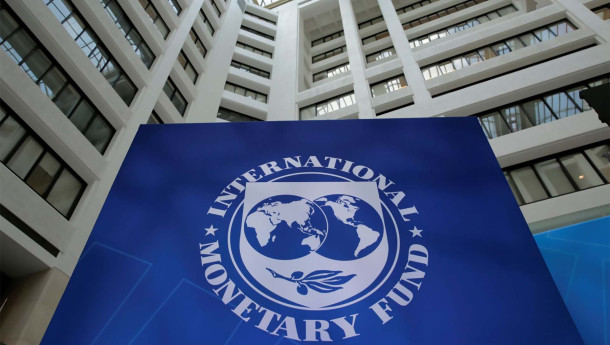
The economy of Cyprus is expected to slow to around 2.5% in 2023, reflecting an erosion in household incomes, tighter financial conditions, and delayed impacts from sanctions against Russia, International Monetary Fund forecasts, after the conclusion of the Article IV consultation with Cyprus. The results were published in a press release on Monday.
The Executive Board of IMF notes that Cyprus’s economy has been resilient to the fallout from Russia’s invasion of Ukraine. Output grew by 5.6% in 2022, while employment recovered and unemployment dropped to a post-Cyprus-financial-crisis low. However, high energy prices contributed to inflation and a larger current account deficit. The fiscal surplus reached 2.3% of GDP and public debt declined strongly. Liquidity and capital adequacy ratios in the banking sector have remained high, and profitability improved. IMF also notes that private sector deleveraging continues to be hindered by the slow resolution of legacy non-performing loans (NPLs).
However, IMF forecasts that growth is expected to average around 3% in the medium-term, supported by public and private investments, structural reforms, and further ICT expansion. High inflation will recede only gradually amid elevated inflation expectations and wage pressures.
"Tight fiscal policy this year will help contain price pressures from aggregate demand and the public debt ratio is on a firmly declining path, while the external current account will improve moderately but remain in sizable deficit," it notes.
The Executive Board of IMF says that a moderately contractionary fiscal stance in 2023 remains appropriate to contain price pressures and further reduce public debt, noting that fiscal policy should stand ready to respond if growth turns out weaker than expected.
Decisions on wage indexation and support measures should be based on a holistic view on their macroeconomic impact, the IMF adds, noting that a fuller automatic adjustment of wages to inflation through the CoLA mechanism should be avoided. "It would likely make inflation more persistent, adversely affect competitiveness, and reduce fiscal space. It would also reduce flexibility in response to future shocks", IMF says. Regarding the guaranteed minimum income, IMF notes that it might need to be carefully recalibrated while strengthening its activation requirements.
Moreover, IMF underlines that fiscal policy should aim at sustaining primary surpluses to reduce public debt over time, supported by a risk-based fiscal framework. "As buffers are rebuilt, available fiscal space should be directed to productive investments for the green and digital transitions. Putting the NHS on a sound fiscal footing and strengthening governance and accountability of State-Owned-Enterprises will help to stay the course with the planned fiscal path," it says.
Banking sector
Despite improved bank resilience, risks remain, according to the IMF. So far, higher policy rates have boosted bank profitability, but credit risks are likely to rise with financial tightening, especially given the high private sector indebtedness, and should be monitored, it adds.
Steadfast implementation of policies to address legacy NPLs would facilitate their faster resolution and private sector deleveraging. The foreclosure framework should be implemented forcefully to address strategic defaulters. IMF notes that banks should also proactively use all available tools to enable timely restructurings, supported by recent legislative progress. Continued efforts are needed to advance work on the newly envisaged hybrid/out-of-court restructuring procedure. The Mortgage-to-Rent scheme will help advance the resolution of NPLs from vulnerable borrowers, but efforts should be taken to minimize fiscal risks from the scheme, IMF underlines.
Further strengthening the AML/CFT framework will help address reputational risks.
"Cyprus is well positioned to leverage its well-developed professional services and strategic location but streamlining immigration would help address labor market shortages, while related housing affordability concerns could be addressed by supply-side measures. Reforms in the RRP are critical for overcoming structural bottlenecks, especially by improving governance and future-proofing workers’ skills though education system reforms, which could be usefully accelerated. Investments in digital infrastructure will support the digital transition", the IMF says in its press release.
It also notes that a greener growth model is an important element of reforms. Integration into the regional electric grid and the expansion of renewables, together with a liberalization of the domestic electricity market, are key elements for Cyprus to become emissions neutral by 2050 and will also improve energy security, but require large public and private investments, IMF concludes.














 3287.99
3287.99 1275.09
1275.09
